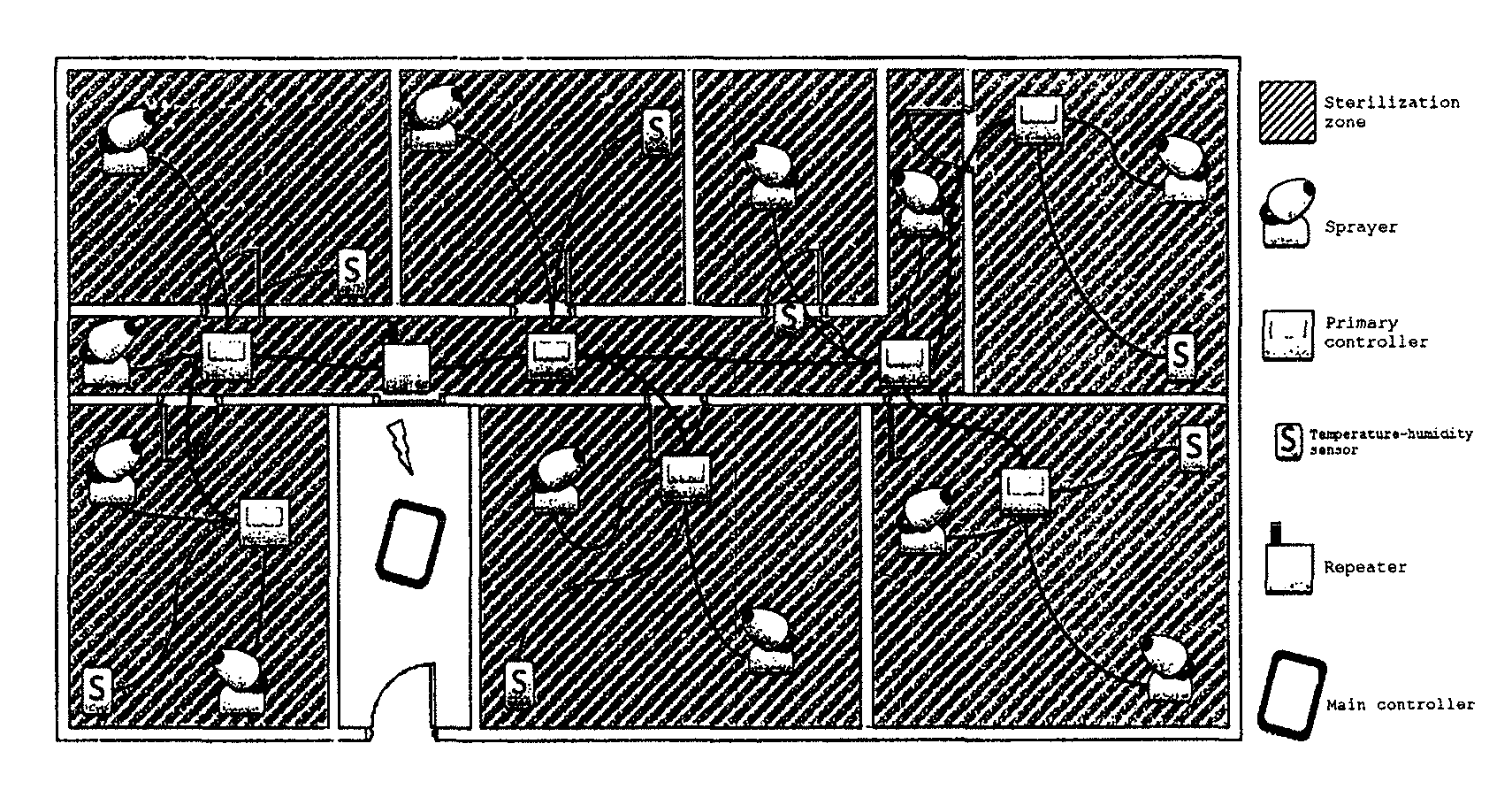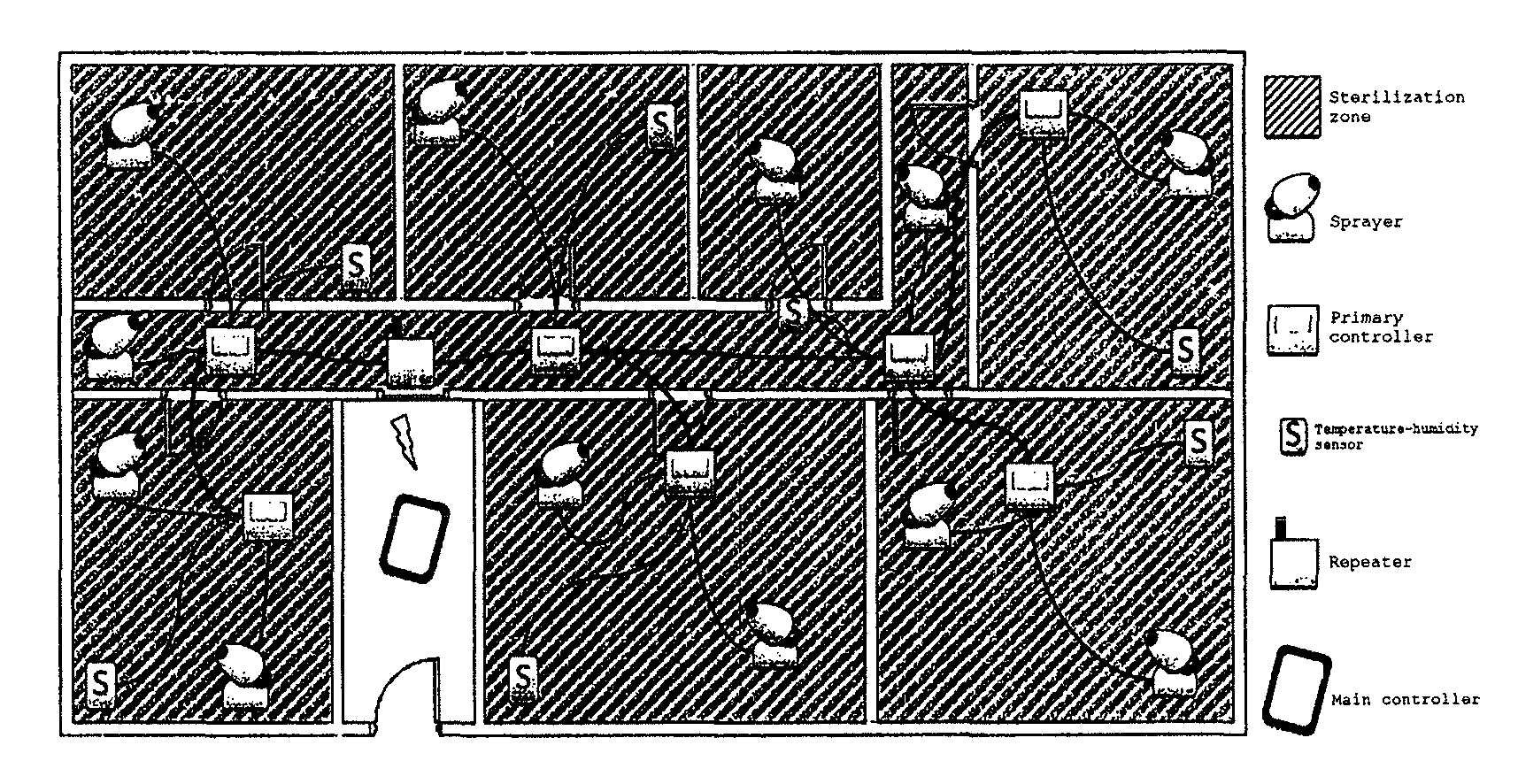Sterilization device
a sterilization device and a technology for sterilizing facilities, applied in the direction of liquid degasification, separation processes, disinfection, etc., can solve the problems of residual toxicity, inability to decontaminate surfaces and internal parts of installed equipment, and large time required for repeated application and wiping of disinfectant, etc., to achieve effective sterilization, wide antimicrobial spectrum, and efficient sterilization
- Summary
- Abstract
- Description
- Claims
- Application Information
AI Technical Summary
Benefits of technology
Problems solved by technology
Method used
Image
Examples
example 1
[0052]A sterilization test was carried out using the sterilization device of the present invention. The details are described below.
[0053]Test facility: CPC (cell processing center; one room+gowning+degowning areas; roughly 16 m2 (38.4 m3).
[0054]Sterilization device: Double fog system, manufactured by Pharma Bio (stand-alone prototype of the sterilizer of the present invention).
[0055]Disinfectant: 4% diluted solution of peracetic acid-based sterilization agent Minncure©, manufactured by Minntech.
[0056]Spraying conditions: The chemical agent was sprayed in the target facility and a humidity of 90% or greater was maintained for 3 hours.
[0057]After the sterilization test was carried out under the conditions described above, an evaluation was carried out based on sterilization validation, adhered microorganism assay, and free-floating microorganism assay. The evaluation methods are described below.
[0058](1) Sterilization Validation
[0059]Bacteria indicator (BI): Filter paper-type biologi...
PUM
| Property | Measurement | Unit |
|---|---|---|
| diameter | aaaaa | aaaaa |
| diameter | aaaaa | aaaaa |
| time | aaaaa | aaaaa |
Abstract
Description
Claims
Application Information
 Login to View More
Login to View More - R&D
- Intellectual Property
- Life Sciences
- Materials
- Tech Scout
- Unparalleled Data Quality
- Higher Quality Content
- 60% Fewer Hallucinations
Browse by: Latest US Patents, China's latest patents, Technical Efficacy Thesaurus, Application Domain, Technology Topic, Popular Technical Reports.
© 2025 PatSnap. All rights reserved.Legal|Privacy policy|Modern Slavery Act Transparency Statement|Sitemap|About US| Contact US: help@patsnap.com


